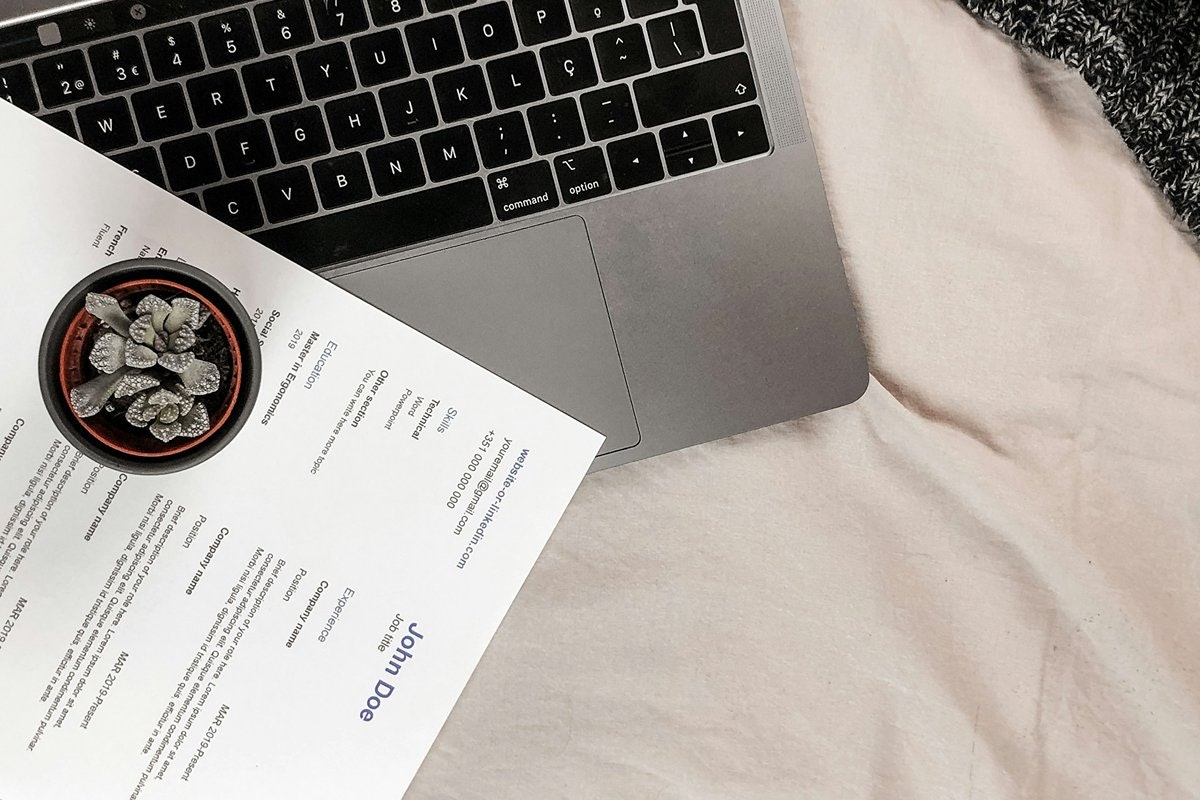How to transition from a casual job to a professional path: guide to boost your career
Are you ready to transition from a casual job to a professional career in Australia? Explore here essential information on how to access qualified job opportunities, understand the key differences between casual and professional roles, and learn how to unlock your full potential on your professional journey in Australia.

By:
LINA AVILA HENAO
Last Updated:
Sep 21, 2024
Tags:
#work #job-interview #certifications
In this article
We have all had casual jobs in Australia, and probably sometimes for longer than we would have liked. However, sooner rather than later the moment arrives and you decide that you are tired and it is time to get a qualified job. Making the jump from an unqualified job to a professional job is one of the most arduous tasks you can face in your career in Australia. Nevertheless, many people have done it, and rest assured that you can achieve it too.
In this article, we will share important information about qualified jobs, how to get them, what differentiates them from casual jobs, and what you need to know to make this transition sooner than you think.
Let’s get started!
But first
If you have a student visa and are wondering if you can get a qualified job, the answer is yes.
However, it’s not as simple as it seems because you will need a position that requires you the exact number of hours you can work. In this case, 24 hours a week. You need to do a thorough research to see if there are positions like that available - often these roles will be marked 'Part-time' or 'Casual' on the job listing.
Also, many employers in Australia are apprehensive about hiring professional staff that are on very short visas, as they feel that training you in their business will not be a good investment for them if you are leaving after a short time.
So, its not impossible, but try to keep the challenges in mind before you start your search!
How to get a qualified job?
Many people think that getting a professional job as a migrant is impossible. The first thing that comes to mind is that you need a very high level of English, then whether your degree is useful in Australia or not, and finally, that you need to go through a number of procedures to achieve it. In reality, this is not always the case, and it is not as difficult as it seems; however, it is a process that requires effort and dedication.
If you have decided that you no longer want to keep cleaning or working in hospitality and your visa conditions have changed (for example, you transitioned from a student visa to a temporary or permanent resident visa and can work full-time), then start considering options to make this transition happen. Here, we will mention some of the most important aspects.
Step outside your comfort zone
Step out of your comfort zone and embark on a new and unknown journey. Get rid of the idea that you need perfect English to work as a professional in Australia. The truth is that while a certain level of English is required to attend interviews and navigate the workplace, it is also true that you can start working in a place and learn along the way by practicing every day.
Explore
Start researching what types of jobs are available in your profession in Australia. Learn how the industry of your career operates. For example, if you are an engineer or pharmacist, look for associations related to these fields in Australia.
Investigate what would be required as a foreigner to work in Australia in those jobs; for example, would you need accreditation? Validation of your degree? Or perhaps your career is not directly transferable in Australia without taking a course there, so you will need to consider studying again.
Prepare
Create a well-structured resume and cover letter and start sending them out. Once you receive calls for interviews, prepare for them. Additionally, having a strong LinkedIn profile will give more credibility and support to your applications.
Don’t be discouraged from sending out resumes if you don’t have much experience in Australia; try volunteering for an organisation, so you can include this on your resume and attract more attention from the people reviewing applications.
Career validation
Validating your career can open many doors for you. In some cases, if you wish to apply for a specific job title, your profession from your country must be recognised in Australia.
Try to validate your career if it’s worth going through this process; on the other hand, if it’s difficult to validate your career and it will take a long time, then start applying for jobs as an office administrator or receptionist. For this role, you won’t need a specific degree, but you will need to demonstrate your skills and ability to handle the job.
Networking
Attend networking events in your field and talk to people; tell them you are looking for a job in your area and if they can provide any advice or guidance.
Many professional jobs in Australia are not even advertised and are obtained through recommendations from acquaintances, so investing time in networking is worthwhile.
Platforms
There are several ways to search for opportunities. One of them is large platforms like Seek or Indeed, where you can find many options and also check job titles.
Another option is to contact recruiters directly, who are headhunters and receive a commission for placing the right person in the role a company is looking for.
Prepare to climb the ladder
Be prepared to start from the bottom of the pyramid. If you were a manager in your country, don’t expect to be a manager in Australia shortly after arriving. You need to start climbing, and this can be achieved gradually. For example, if you are an accountant, you may need to begin your professional journey as a bookkeeper in a small company and then advance in your career.
What is the difference between a casual job and a qualified job?
The change from a casual job to an office job huge. From the very first day, you will notice a significant difference in your working conditions and how you are perceived at work. Keep in mind that this transition represents a great leap forward in your career and professional life in Australia.
More structure
While casual jobs offer more flexible hours and responsibilities that typically vary from day to day, in an office job, you will find a more structured and organized environment. The daily routine becomes more predictable, providing you with greater stability in your life.
Schedule
You will have more regular hours, and it is common to work Monday through Friday, so you will have weekends to yourself again. It will be much easier to have a social life and enjoy your free time doing activities you like. This way, you will achieve a balance between your personal and professional life that you may not have had before.
Dress code
You will need to dress according to the dress code specified by your office. Some offices require business attire like pants, shirts, and closed shoes.
Others are more relaxed, and you might be able to wear jeans and sneakers, but this also depends on the type of job. In general, Australians are quite relaxed about dress codes, and you’ll notice that people put much more effort into this than in Latin American countries.
Salary
You will earn a salary that is double or triple than before, in less time and with less physical effort. In addition to a higher salary, in a professional job, you are likely to receive additional benefits such as growth and professional development opportunities, as well as an environment that values your contributions.
In some cases, the hourly pay in an office may be equivalent to what you earned as a cleaner; however, you consider that you will be learning new skills and practicing your English.
Activities or tasks in the workplace
It will be a big change to move from a physically active job to sitting all day in an office; at first, it may take some getting used to, but it won’t be difficult. Keep in mind that being in a professional job does not necessarily mean it has to be in an office. There are some professional jobs that are in factories, in construction or in laboratories.
On the other hand some casual jobs can be professional. This is often the case in jobs like lab technicians or even in construction, where you are hired as casual, but you are called every day and have a regular schedule because they need you, although this can vary.
Your feelings about the job
You will feel very proud of yourself for having secured a job in an English-speaking country in your field. It probably won’t be easy, but remember not to put too much pressure on yourself, as you won’t need to learn everything in a single day.
You are the only one who can pressure yourself; no one else will. You’ll see that in Australia, people are much more relaxed, managers are patient, and they won’t rush you for results in the first week.
About the job
You will learn many new things at first, get to know your team, and realise what the work environment is like.
You will also see that the productivity standards in a workday in Australia are different from those in Latin America. The amount of work expected to be done in a day is not as much as you think. People enjoy chatting, having coffee, and you will be incredibly surprised at how relaxed some jobs are. Honestly, I saw this as a positive because it helps reduce tension in the workplace, keeps people happy, and you will feel much more motivated and comfortable going to work.
My big leap
Here’s my story! My first job in Australia was cleaning (classrooms, dining areas, and social spaces) at a very exclusive High school in the suburbs of Melbourne, and I did it for almost 3 years. One day, feeling tired of doing the same thing for so long, I decided to quit without having another job lined up. A person from the church I belonged to casually called me that week to say they had seen a position advertised through the internal newspaper and if I was interested in applying.
I applied for the job, they called me for an interview, and I got it! without having a perfect level of English. I feel that they decided to give me a chance, and they probably saw that I had potential. Even though this job was not in my field, it was a significant leap towards a professional job in Australia.
My title was Administration Receptionist, which basically meant being the receptionist of a spiritual retreat center. My responsibilities included answering the phone, addressing inquiries, making reservations, processing payments, and guiding clients.
I had good days and bad days. Some people were patient with my English; others were not, but I had to be strong. I felt a lot of pressure (self-imposed) because I wanted to do well and prove to myself and others that I could do things correctly.
Understanding the different accents was the hardest part for me. My boss was Irish, so I could barely understand him. I think I used to catch the first part of the sentence he said, but then I had to recreate the rest in my head. Sometimes I got it right, sometimes I didn’t.
I also had to deal over the phone with people from many parts of the world who had very strong accents. Being the only person from Colombia, I received many questions about my country from clients and colleagues. Some of them didn’t even know where Colombia was located on the map, but I never felt uncomfortable with the questions.
I spent almost a year there, but then I felt it was not longer challenging enough. I had learned everything, and there was no more progression for me, so I decided that I missed my career as a scientist and wanted to find a job in my field (but I’ll tell that long story in another post).
The language skills I acquired in this role were critical for my next steps, which included my first job in a laboratory and my master’s degree. Many people say that getting a professional job in a foreign country is just luck, but to me, it’s more than that. It’s the sum of the effort you put into learning English, researching your field in Australia, building a thorough resume, preparing for interviews, and learning new things every day. In addition to that, there are two more components: the courage to go out and look for a job and the perseverance to not give up.
To finalise
Finding a professional job is not something that happens overnight and depends on many factors. As we’ve seen, English proficiency is an important one. The type of visa you have is also essential for the options available to you, as well as how proactive you are in building and sending your resume and how well you connect with people in your industry.
Think of this process as a whole with many small components. If you work hard on each of those parts, you will gradually start to climb and evolve until one day you find yourself in the job you’ve always wanted.


